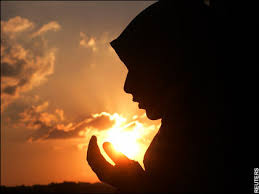Allah's Apostle said, "When the month of Ramadan comes, the gates of Paradise are opened and the gates of the (Hell) Fire are closed, and the devils are chained." (Bukhari 4:497).
 Truly, there is no end to Allah’s (swt) mercy. Without an iota of doubt, all of us are sinners and disobey our Master every now and then. But He, the most compassionate, the most merciful, still keeps giving us opportunities to get closer to Him, to experience Him, to lead our life according to His will. The month of Ramadan is one such golden opportunity that Allah (swt) presents us with every year. With less than a week to go before we step into the remarkable month, if we do get there with Allah’s grace, we would be fortunate enough to get it ‘yet again’. Yes dear friends, ‘yet again’.
Truly, there is no end to Allah’s (swt) mercy. Without an iota of doubt, all of us are sinners and disobey our Master every now and then. But He, the most compassionate, the most merciful, still keeps giving us opportunities to get closer to Him, to experience Him, to lead our life according to His will. The month of Ramadan is one such golden opportunity that Allah (swt) presents us with every year. With less than a week to go before we step into the remarkable month, if we do get there with Allah’s grace, we would be fortunate enough to get it ‘yet again’. Yes dear friends, ‘yet again’.
So many people who shared the ‘dastarkhaan’ with us during ‘sehri’ and ‘iftaar’ in the previous Ramadan, today are resting in their graves. They would perhaps, never have thought, that it would be the last Ramadan they would be witnessing in their life. We must, therefore, thank Allah (swt) abundantly, if at all we do get this Ramadan.
Ramadan and fasting are pretty much synonymous, aren’t they? Muslims observe obligatory fast for 30 days as ordered by Allah (swt) during this month. They stay hungry from dawn to dusk, without letting a morsel of food or a drop of water go down their throats. Any activity when being carried out, must be done with its objective in mind. What then, is the objective of the fasting and other acts of worship during Ramadan?
Allah (swt) says in the Quran: "O you who believe, fasting is prescribed to you as it was to those before you, that you may attain righteousness." (2:183).
Allah (swt) has asked us to develop ‘Taqwa’ (fear of Allah) during this month. How merciful is our Lord, who even chains down the devils, as mentioned in the Hadith at the beginning, so that accomplishing this objective becomes all the more easier. However, our 'nafs' (the desires within) continues to remain with us in Ramadan too and 'Taqwa' is the best weapon to combat it. It is ‘Taqwa’, that drives a believer to act according to Allah’s will and refrain from evil. When the words of Adhaan strike the eardrums of a believer who is being caressed to deep sleep, it is the ‘Taqwa’, the fear of Allah, that makes him unshackle his warm bed linen that he was wrapped in, get up, and walk towards the mosque to carry out the orders of his Lord. This month is a perfect training period to develop ‘taqwa’, but if the same old story continues post Ramadan, then perhaps, our Ramadan might not serve the true purpose. Let us offer prayers and carry out all acts of worship with an intention to remain righteous and God conscious post Ramadan as well.
When a believer fasts with true intent and with ‘taqwa’, he attracts the immense mercy of Allah (swt). A person can easily lock up his room without any one’s knowledge, eat as much as he wants, and still say he is fasting as no one saw him hogging foodstuffs behind closed doors. But a true believer will not do so, even if he has the means to do it, for the simple reason that his Lord is watching him. It is this ‘taqwa’ that Allah wants us to attain during Ramadan and maintain it for the rest of our lives. No wonder Allah has chosen fasting to be the acts of worship that He Himself will reward for it.
This month is a bonanza period, as far as reaping rewards is concerned. It is the month where an optional act of worship (nafil) earns us the reward equivalent to an obligatory one (fard) and the obligatory act of worship earns the reward of 70 such acts. According to a hadith, if one arranges for the ‘iftaar’ of the other, he would get the same reward as that of the one whose iftaar was hosted. And guess what, this reward can be attained by arranging of others’ iftaar even with a piece of date or a glass of water!
The month is also the time when we are expected to develop concern for others in general and the poor and the needy in particular. One of the many things that fasting teaches us is the difficulty faced by the poor, who stay hungry for days together.
It is also the time where we must try and engage in supplications as much as possible. Engaging in ‘duaa’ individually at the time of breaking the fast, is advised as mentioned in a hadith: “The fasting person has at the time of breaking his fast a Du’aa’ that is not rejected.” (Ibn Majah & Al-’Hakim).






Comments
Add new comment